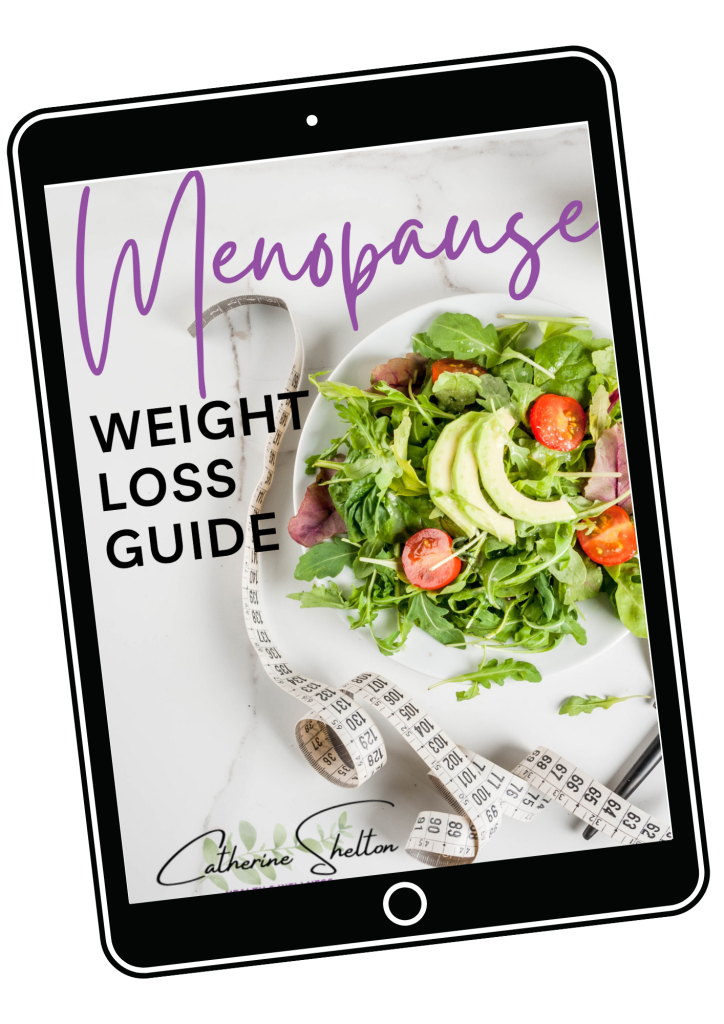Why We Struggle With Motivation
If you’re anything like me, then you’ll love fresh starts. Do you remember that first day back at school, when you received your brand-new exercise books and got to write your name neatly on the front? How you kept that first page so beautiful? How exciting it was to get your new timetable, and get out your new pens and pencils?
But then, somewhere along the way, the novelty wears off, doesn’t it? You realise that a whole school year is actually a really long time, and you’re in it for the long haul. Perhaps you keep up the neat handwriting for perhaps a few pages, but then you make a mistake on page 5 and suddenly it doesn’t look quite so perfect anymore, so you stop trying so hard. You get a bit sloppy. Things start to go downhill.
Does this sound at all familiar?
If so, you probably find the same when it comes to your health goals. You start a new programme or diet, or you read some book or listen to a podcast that really inspires you, and you decide to go for a fresh start on Monday (it’s always a Monday!).
Next, you might clear out your cupboards and head to the supermarket to stock up on healthy fruit and vegetables. You feel quite proud of yourself as you head for the checkout and can’t help hoping that the cashier notices all your super healthy choices.
Or maybe you’ve just joined the gym or started a new workout routine. You’ve bought some new workout clothes, maybe some new trainers or weights. You’re super motivated and quite excited at the prospect of this ‘new you’.
It all goes really well for a week or two, but then something happens to derail you. You have a bad day, or you get ill, or you have to miss a workout session because something else comes up. Life happens. You start to feel tired, and it’s tempting to drift back to your old habits. Maybe you allow yourself to have that chocolate bar or that iced muffin, which is fine, only now you think, well, I’ve blown it so I might as well enjoy a second one…or a third.
Before you know it, you’ve lost your motivation. You haven’t stuck at it long enough to see any particular results, so once the novelty wears off it’s just too tempting to go back to the way things were before. You’ll start again next Monday… or next month… or after the holidays.
Lack of motivation is one of the number one reasons why people don’t continue with their health and wellness goals.
But why is lack of motivation such a problem, and what can we do about it?
I’d like to suggest there are 3 main reasons why you might be struggling with motivation:
- You’re not connected with your ‘WHY’
- You’ve not connected your health with your priorities
- You’ve not surrounded yourself with enough positive support and encouragement
So what do I mean by that?
1. You lack motivation because you’ve not connected with your ‘WHY’
You’re probably operating in a place wanting to ‘move away from’ negative outcomes and behaviours, but not yet in a place of ‘moving towards’ positive outcomes and behaviours. Maybe you started the new health regime because you realized you were a bit overweight, or lacking in energy or just not feeling your best. And those are all great reasons to want to start something new, but they won’t be enough when the going gets tough. You need to have something that you’re working towards. A vision of the new you. Your ‘Why’ behind it all.
2. You lack motivation because health is not a priority
If you’re honest, your health isn’t as much of a priority as the other things in your life yet, which is why it’s easy for it to fall by the wayside. Your other priorities may be good things, like your family, your work commitments, or wanting to have a clean house. But that means that, when other priorities take precedence, it’s easy for you to drop your new health habits.
3. You lack motivation because you don’t have enough support
And thirdly, you might have thought that it would be easy to do this on your own, but actually, you find that the people around you are pulling you back to the old way of doing things. Maybe your family isn’t on board yet with your new desire to avoid sugar, or maybe your friends still expect you to go out late drinking with them on a Saturday night so you feel too tired to go for a walk or a run on Sunday morning. They might mean well, but they’re not actually helping you make a change and do something different. They’re willing you to stay the same because they feel comfortable where you are, with the status quo.
Okay, so how can we start to turn that around?
7 Steps To Increase Your Motivation
I have 7 steps for you to help you increase your motivation to stick with your new health goals, and here they are:
1. Discover your values
So, often this is one of the first things I do with my coaching clients. We sit down and talk about the things that are important to them. Their deep, core values. Those might be things like: family, being a role model, having freedom, their faith, integrity, being organized, having a purpose. Whatever it might be – they are different for everyone. Have a think now about your top 3 or 4 core values.
2. Link your health goals to your values
How does your health goal or goals build on your values? If family is a core value for you, then how will a healthier version of you affect your family? Will it mean you have more energy to play with your kids, or will you feel more comfortable physically with your partner? If having a purpose is an important value for you, can you think of a health goal that would relate to that? Like, perhaps you could sign up for some kind of challenge where you’ll be raising money for a charity that’s close to your heart.
3. Create a deep ‘Why’ behind your health goals – one that really motivates you.
When I work with my clients I get them to craft an Inspirational Statement, just a sentence or two that talks about their Why behind their health and wellness goals. Can you create your ‘Why’? Write it down and display it somewhere where you will see it often, such as up on the fridge in the kitchen, or on your phone screensaver, or on your nightstand.
4. Create margin in your life
If you’re going to be successful, you’ll need to make space in your life to achieve your new health goals. We need to be deliberate and intentional about carving out time for our new healthy habits, because they just won’t happen if we don’t. That might mean taking a good look at your diary and rearranging your priorities.
What can you drop? Where can you find more time? Can you set aside a particular time each week for your exercise or for prepping vegetables or for making a meal plan? When will you do that? Schedule it in like an important meeting.
Not having enough time is one of the big complaints I hear from people struggling to achieve their health goals. But at the end of the day, we all have the same 24 hours. How we choose to fill those 24 hours tells us where our priorities are. I don’t want to make you feel guilty or judged, and I know for many people there are difficult struggles and commitments in their lives, but many of us can find just one or two extra hours a week from somewhere.
It might mean cutting out something else, or getting someone to look after the kids for you, or putting your phone away. You’d be quite surprised how much extra time you can gain by not scrolling through your phone 20 times a day – and I’m speaking to myself on this one!
5. Start with very small steps and work on each one until it becomes an unconscious habit
I don’t know if you’ve heard of the four stages of competence in psychology. Let me show you how that works when it comes to your health goals.
We all usually start with ‘unconscious incompetence’. We’re a bit unhealthy, but we don’t actually realise it. We might think it’s perfectly normal not to do any kind of exercise because that’s what our family of origin did, or what our current set of friends do. Spare time is spent on the sofa in front of the TV with a bowl of popcorn.
Then, we start to hear about the importance of exercise for our health. We come across some information, or one of our friends joins the gym. It sounds intriguing, and we wonder if we could do something similar. Or maybe we have a little health scare and suddenly realise just how unfit we actually are. We’re now in a state of ‘conscious incompentence’. We still haven’t done anything about it, but now we’re aware that we need to change.
So we decide to sign up at the local gym. We take the first step and do our best to turn up for a swim four times a week. We aim for a minimum of 30 lengths. The first two weeks go well and we feel very proud of ourselves, but by the third week we feel exhausted. It’s a bit too much, but we try to keep going. We’re in the stage of ‘conscious competence’, where it’s quite an effort to keep going with our new habits. We really have to force ourselves to do it, and sometimes it’s not fun. It’s this stage where it’s all too easy for our motivation to flounder and for us to give up.
Ideally, we want to be at the final, fourth stage of ‘unconscious competence’.
That’s where our new healthy habits are so ingrained that they’ve become second nature. Just like we wouldn’t think twice about brushing our teeth before bed, we also wouldn’t think twice about turning up at the swimming pool after work on a Monday at 5pm. It’s just something we do.
So how do we move from stage 3 to stage 4? Well, in the example I just shared, probably, aiming for 4 times a week with a minimum of 30 lengths was just too much. We’d have been much better off starting with once a week, a minimum of 10 lengths, at the same time every week. It might sound too small a step at the beginning, but we need to start small if we want the habits to stick – if we want to keep going for the long term. And we ideally need to work on one small habit at a time until that becomes almost unconscious for us, before we’re ready to move on to another small habit. That’s the way to keep your motivation going.
6. Step into your new identity
This is a really important step if you want to increase your motivation. We need to be careful of the language we use about ourselves, and the labels we or other people have put on us.
Perhaps you’ve grown up thinking ‘I hate exercise’. Maybe you have bad memories of PE lessons at school, or maybe your teachers or your parents gave you the label ‘not sporty’. It’s important we identify these and question whether they’re really true.
Can you create a new identity for yourself? Instead of saying ‘I hate exercise’, can you say to yourself ‘I’m someone who likes to swim once a week’. Or instead of saying ‘vegetables are boring’, can you say, ‘I’m someone who loves to eat a healthy salad at lunchtime’.
Our words have so much power over us, so turn them around and use them for good. And if you notice that other people have those labels for you, then start to challenge them.
I realized several years ago that I had encouraged the label of ‘Catherine is the chocoholic in the family’. This ends up being self-perpetuating, as well-meaning people would then always buy me chocolates for birthdays or Christmas. So I’ve been trying to turn that around and not encourage it. Yes, I enjoy chocolate every now and again, but it’s not something I want to be known for. Instead, I’m aiming to be sugar-free for the next 6 months, so that’s the label I’m trying to encourage instead, in a positive way. ‘Oh yes, Catherine’s sugar-free, but she’d love some fruit instead.’
7. Surround yourself with people who are moving in the same direction, and are ideally a few steps ahead of you.
When it comes to motivation and sticking with your goals, it’s so, so important to have the support and encouragement of people around you. Let’s face it, you’re much more likely to turn up once a week at the swimming pool to do your 10 laps if you know your friend will be there waiting for you.
Sometimes we’ll be lucky enough to have friends who are already doing the kinds of things we want to do, but it’s not always true. We might need to go looking for some new friends or a new group who will help us create our new, healthier identity.
We need to find positive role models. They could be actual people, in person, or they could be a podcast we listen to, or an author who inspires us, or an online group where we get encouragement and support to keep going.
Which brings me on nicely to talk again about the Healthier Life Club! Watch this space for more information about that when it launches on the 26th June 2023, or make sure you’re on my mailing list to be the first to hear. Head to bit.ly/freemenopauseguide if you’re not already on my list.
Episode Show Notes
Sign up to my mailing list and grab your FREE Menopause Weight Loss Guide.
Come and hang out with me on Facebook and Instagram
Join our Healthier Life Through Menopause Community Facebook Group
Want to find out more about my health coaching programmes? Head over here.
Interested in getting some private, one-on-one health coaching? Jump on a free Discovery Call to find out more, no strings attached.
If you’d like to give my feedback and suggestions for future episodes, I’d love to hear from you. Email me at hello@catherineshelton.com
If you’re struggling with a lack of motivation, then getting some health coaching can be one of the best things you can do! I can help you identify your core values, tap into your ‘Why’ and help you implement small but sustainable changes that will help you stay motivated for the long term and finally see results. If you’re interested to find out more, jump on a free, 30-minute discovery call with me, I’d love to hear from you.
Disclaimer: This information is for educational purposes only and does not replace advice given by your primary care provider. Please see your doctor if you’re considering making substantial changes to your diet and lifestyle.

GRAB YOUR FREE MENOPAUSE WEIGHT LOSS GUIDE!
Are you finding the pounds are gradually creeping on? Are you frustrated because the usual trick of ‘eat less, move more’ just isn’t working anymore?
In this guide, I explain why women often gain weight in perimenopause, and I give you 3 simple tips so you can start to turn that around right away!









Leave a Comment